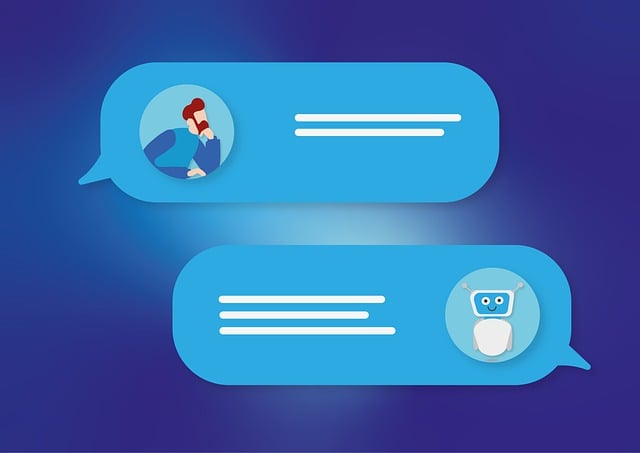AI chatbots online have revolutionized user experiences by leveraging advanced NLP algorithms to understand and respond to queries in real-time, across sectors like customer service, healthcare, shopping, translation, and mental health. Their benefits include 24/7 availability, instant responses, and handling repetitive tasks, enhancing customer satisfaction and operational efficiency. However, challenges related to data privacy, security, bias, and fairness require transparency and diverse training datasets to ensure ethical standards and equitable online interactions.
“Discover the revolutionary world of AI chatbots—smart digital assistants transforming how we interact with technology. From online customer service to personalized learning, these chatbots are unlocking immense potential. This article delves into the mechanics of AI chatbot development, explores their diverse applications across sectors, and examines the ethical landscape shaping their future. By understanding how AI chatbots work, we can harness their benefits while navigating associated challenges.”
- Understanding AI Chatbots: Unlocking the Potential
- How Do AI Chatbots Work? A Technical Glimpse
- Benefits and Applications of AI Chatbots in Various Sectors
- Challenges and Ethical Considerations in AI Chatbot Development
Understanding AI Chatbots: Unlocking the Potential

AI chatbots have transformed the way we interact with technology, offering a dynamic and personalized experience in our daily lives. These intelligent assistants leverage advanced natural language processing (NLP) algorithms to understand and respond to user queries in real-time. By analyzing vast amounts of data, they can provide insightful information, perform tasks, and offer support across various sectors, from customer service to healthcare.
The potential of AI chatbots is immense, especially with their ability to adapt and learn over time. As AI continues to evolve, these virtual assistants will become even more sophisticated, enhancing user engagement and streamlining processes in both personal and professional settings. Whether it’s an online shopping assistant, a language translator, or a mental health companion, AI chatbots are revolutionizing how we access information and services, making our lives easier and more efficient.
How Do AI Chatbots Work? A Technical Glimpse

AI chatbots have revolutionized the way we interact with technology, offering a dynamic and intuitive user experience. Under the hood, these sophisticated tools utilize advanced natural language processing (NLP) algorithms to understand and generate human-like text. When an AI chatbot receives a query from a user through a text interface or voice input, it processes the input using machine learning models trained on vast datasets.
These models analyze patterns, context, and semantics to deliver relevant responses. The process involves breaking down the user’s message into tokens—words or subwords—and then mapping these to potential intentions or entities. By drawing from extensive knowledge bases, including structured data, unstructured text, and external APIs, AI chatbots can provide accurate and contextually appropriate answers in real time, ensuring a seamless interaction for users seeking assistance or information online.
Benefits and Applications of AI Chatbots in Various Sectors

AI chatbots are transforming the way businesses operate across various sectors, offering numerous advantages that enhance customer experience and streamline operations. One of their key benefits is 24/7 availability; these chatbots can provide instant responses to customer inquiries at any time, improving customer satisfaction and reducing wait times. They also excel in handling repetitive tasks, such as answering frequently asked questions, processing basic queries, and providing product recommendations, thereby increasing efficiency and allowing human agents to focus on more complex issues.
The applications of AI chatbots are vast and diverse. In the retail industry, they personalize shopping experiences by offering tailored product suggestions based on customer interactions and preferences. Healthcare benefits from their ability to schedule appointments, provide initial patient assessments, and offer medical information, reducing the workload on healthcare professionals. Furthermore, AI chatbots in the financial sector can assist with account management, provide investment advice, and facilitate secure transactions, contributing to a more accessible and efficient banking experience for customers. With their versatility and growing capabilities, ai chatbots online are becoming indispensable tools across multiple industries.
Challenges and Ethical Considerations in AI Chatbot Development

The development of AI chatbots has revolutionized how we interact with technology, offering unparalleled convenience and accessibility in our daily lives. However, amidst this rapid advancement, several challenges and ethical considerations demand our attention. One significant concern is data privacy and security; AI chatbots often require vast amounts of user data to learn and improve, raising questions about the collection, storage, and protection of personal information. Ensuring transparency and gaining user trust in how their data is handled is crucial for maintaining ethical standards.
Additionally, bias and fairness are critical aspects that need addressing. Chatbots are only as unbiased as the data they are trained on; if the training data contains societal biases or stereotypes, the chatbot’s responses may reflect and perpetuate these issues. Developers must actively work towards creating diverse and inclusive datasets to foster more equitable and unbiased AI chatbots that serve all users effectively.
AI chatbots are transforming the way we interact with technology, offering enhanced efficiency and accessibility across various sectors. From customer service to healthcare, these intelligent assistants are revolutionizing communication, providing personalized experiences, and streamlining tasks. However, as we navigate this exciting landscape, it’s crucial to address ethical considerations and ongoing challenges, ensuring that AI chatbot development remains responsible and beneficial for all users seeking support from these online assistants.
